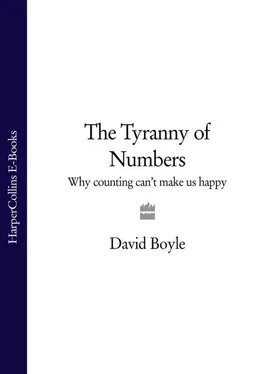1 ...6 7 8 10 11 12 ...17 Among the faithful were some of the great figures of reform from the immediate past and future, the radical tailor Francis Place and the future sanitation reformer Edwin Chadwick in the shadows. In their minds, we might imagine, was a sense of enormous achievement – two days before, the Great Reform Act, which had been the focus of all their hopes, had been given Royal Assent. There might also have been the occasional less welcome echo from Mary Shelley’s Gothic novel Frankenstein , published 14 years before, as Southwood Smith’s scalpel glinted in the candlelight – with all its warning for the Godless who meddle with the untouchable moments of birth and death.
They might also have been wondering whether this was the right way of remembering their hero. Dissection was then regarded as such an appalling end that it was handed out as an extra punishment for the murderers who normally found themselves cut open in this room. Southwood Smith the former preacher managed to keep his voice steady, but his face was as white as the corpse’s. Bentham’s funeral guests would have reassured themselves that they were carrying out the details of his will, and that they were men of the new age of science, and could put aside those old-fashioned notions of superstition, emotion and shame.
Could those things be measured in Bentham’s new political morality of ‘utility’? The facts – yes, the rigorously logical facts – were that it was more ‘useful’ to dissect the philosopher’s body than it was to bury it. And as Bentham had written himself, if you were going to have statues or portraits of him, it was more ‘useful’ to use the real thing, rather than let it go to waste in a coffin in the earth.
When Smith finished his work of cleaning and embalming, Bentham’s body was to be an ‘Auto-Icon’, a modern monument and a more exact replica of the man than any artist could possibly achieve. It would be dressed in his own clothes, with his walking stick (which he used to call Dapple, after Sancho Panza’s mule) firmly in his hands. It would remain in a glass case in University College, London, which he had done so much to turn into the reality of bricks and mortar.
The plan didn’t go quite as expected. Despite Bentham’s best endeavours to study the head-shrinking methods of primitive tribes, his own head shrivelled ghoulishly and extremely fast. A few years later, the college decided to replace it with a waxwork. The original was placed between his legs, from where it has occasionally been stolen. And there Bentham’s Auto-Icon remains, wheeled gravely into important college meetings, and still on display to the professors and students of London University and anybody else who wanders in, together with some very un-Benthamite rumours about ghosts.
It was a fittingly scientific end to the life of the man who gave us the philosophical school of utilitarianism. Because it was Bentham who told us that what is good and right is what most promotes human happiness – not necessarily what it says in law or the Bible. And it was Bentham who launched the world’s politicians on an increasingly determined set of calculations, so they can know what this ‘good’ is in any given situation.
The daily outpouring of figures and statistics that now so dominates our conversations began partly with Bentham, but he was also a symptom of his time. At the beginning of his life, as he stood with his father at the age of 12 to watch the coronation procession of George III, London was dirty, foul-smelling and dangerously brutal, with one congested bridge over the river. By the end there were eight bridges over the Thames and the streets were lit by gaslight, and steam trains – ‘self-moving receptacles’, as he described them – were beginning to change the shape of cities. What’s more, his native land had experienced no less than 30 years of census returns and was about to start the compulsory registration of births, marriages and deaths. The number-crunchers had arrived. Some people even predicted it at the time. ‘The age of chivalry is gone,’ moaned Edmund Burke in the House of Commons. ‘That of sophisters, economists and calculators has succeeded, and the glory of Europe is extinguished for ever.’ And if one person could be blamed for that, you could probably waggle the finger at Jeremy Bentham.
Now almost two centuries have gone by since his death, you would have thought it might be possible to get more perspective on the man who did so much to create this aspect of the modern world. But that still seems impossible. Bentham, for all his mild manners and gentle unemotional ways, has inspired passionate feelings of distaste ever since. Thomas Carlyle described Bentham’s contribution as a ‘pig philosophy’. Karl Marx went even further, describing Bentham as ‘the insipid, pedantic leather-tongued waste of the commonplace bourgeois intelligence of the nineteenth century’. Trotsky was immediately converted by reading his works at the age of 17, but later condemned Bentham’s ideas as ‘a philosophy of social cookbook recipes’. The humourless Nietzsche was even moved to verse to describe him:
Soul of washrag, face of poker,
Overwhelmingly mediocre.
Looking at Jeremy Bentham’s face now, in the glass case, it does seem a little on the poker side. Even his clothes seem ludicrous, as if they have been borrowed from a Disney cartoon, and don’t seem nearly dangerous enough to inspire such hatred. Nor do the stories of the old boy jogging from his home in Westminster to Fleet Street well into his 70s, about his ancient cat (whom he called the Reverend Dr John Langhorn) and his determined early-morning walks round the garden.
His works are impenetrable and his autobiography was bolwderized and put into an unreadable third person by his incompetent assistant John Bowring, so it is hard to get a sense of the man. The overwhelming impression is that here was a mild, vain, fastidious, pedantic, irritating obsessive, who never really lived a full life – hardly loved and barely lost – but who brought about a revolution which is still such an important part of our lives that he remains as ambiguous as ever.
Jeremy Bentham was born on 15 February 1748, the son of a successful City of London lawyer who provided him with such a miserable, monotonous and gloomy childhood that he put the attainment of happiness at the centre of his philosophy. His mother died when he was ten, and life with Jeremy’s overbearing and demanding father meant no games and little fun. No other children were ever asked to the house.
Instead of embracing the law as his father intended, Bentham used his small allowance to spend his time reading the works of the philosophers David Hume and Claude Adrien Helvétius. In them he found the basis for his philosophy – that you could estimate happiness from a number of different pleasures and that public ‘utility’ was the basis of all human virtue. Reading Helvétius during the 1770s, and walking a little way behind his family – you can picture their exasperation at this gauche and bookish adolescent trailing along after them – he asked himself: ‘Have I a genius for anything?’
Adolescents ask themselves this question often. But to Bentham, the answer came like the Angel Gabriel appearing to Mary. He took the clue from the book he was reading, where Helvétius gave his opinion that legislation was the most important of earthly pursuits, an opinion widely approved by legislators the world over. ‘And have I indeed a genius for legislation?’ said the young Jeremy to himself. ‘I gave myself the answer, fearfully and tremblingly – Yes.’
Enthusiastically, and already packing his mind with this sense of historic mission, he devoured as many of the works of moral and political philosophy as he could get his hands on. Tom Paine was starting to think up his Rights of Man , there was simmering discontent in the American colonies, and ideas were dangerous world-shifting things. Bentham flung himself in. But it was when he travelled back to Oxford to vote as a university MA in the 1768 parliamentary election, that he had his real breakthrough. He was rummaging through the small library in Harper’s Coffee House, when he came across the pamphlet by the chemist Joseph Priestley, which included the phrase ‘the greatest happiness of the greatest number’. Bentham let out a sharp ‘Eureka!’ and dashed out to make it his own.
Читать дальше












